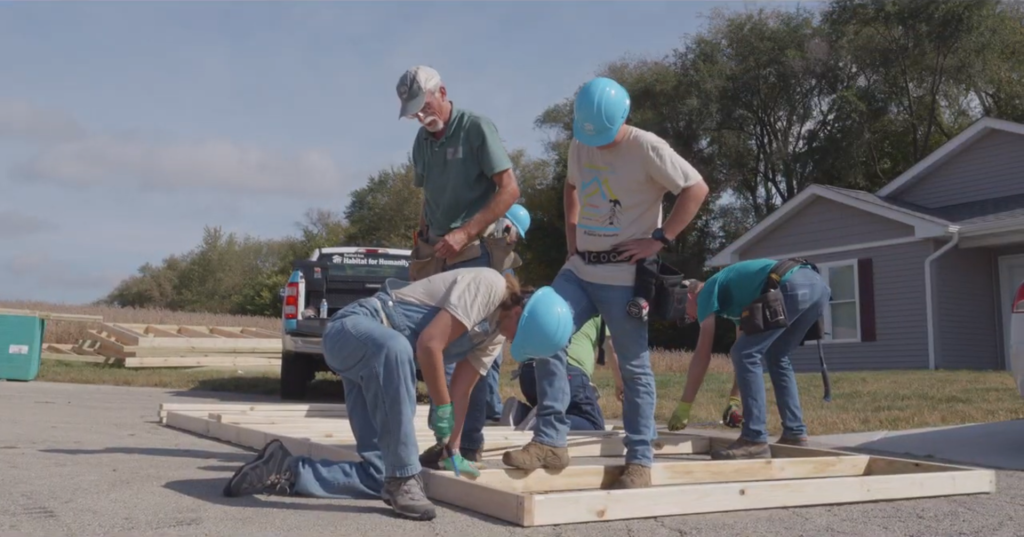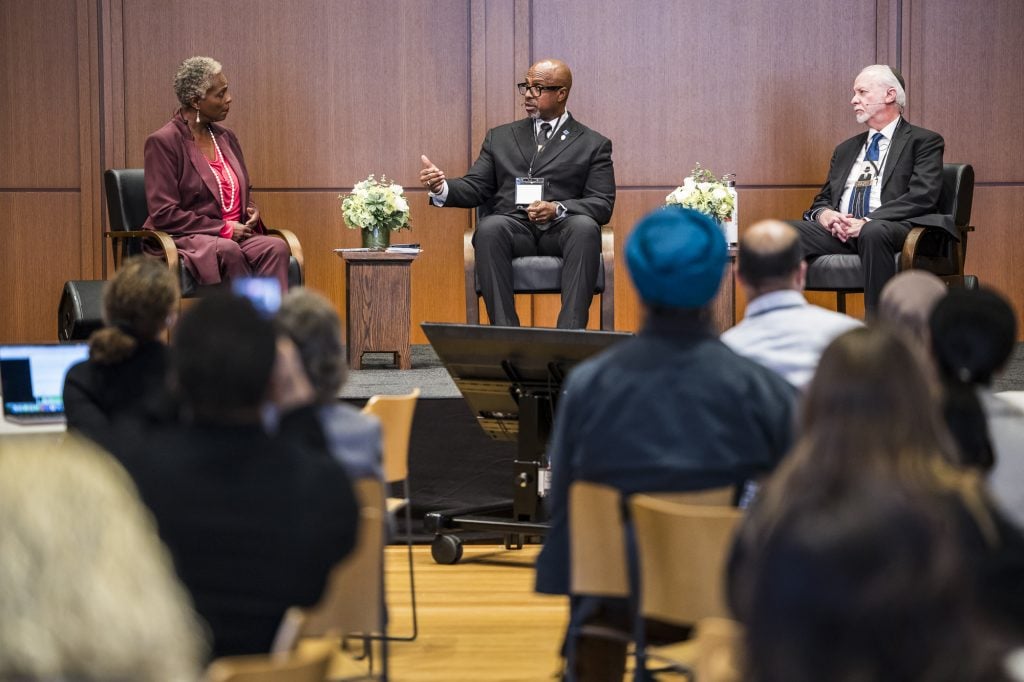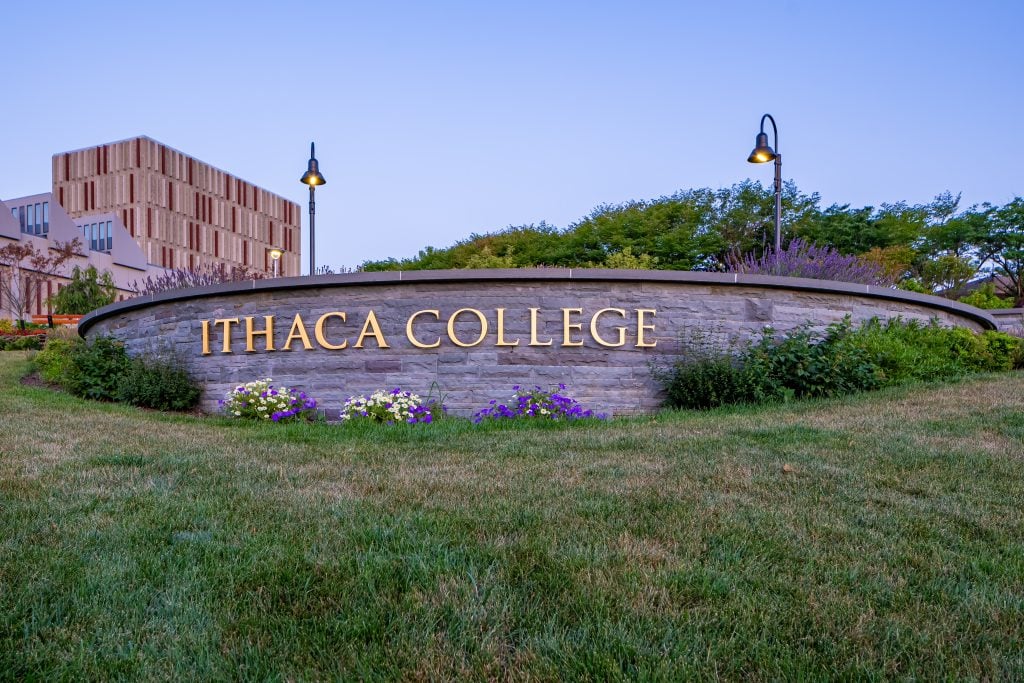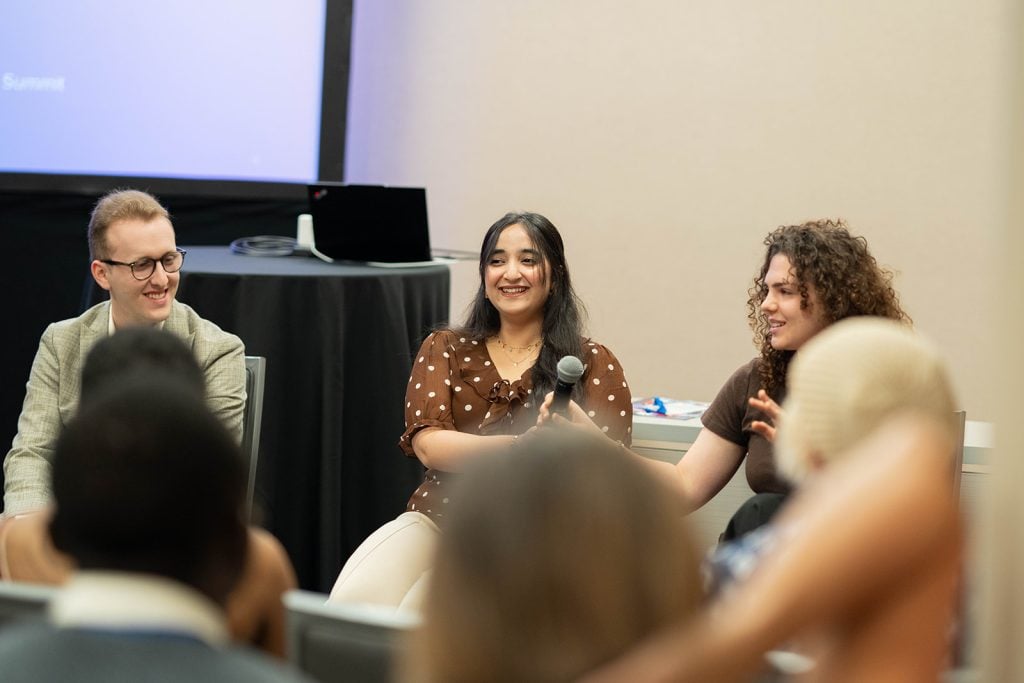How Interfaith Works on Christian Campuses: ‘Be Brave and Move Forward’
February 14, 2022
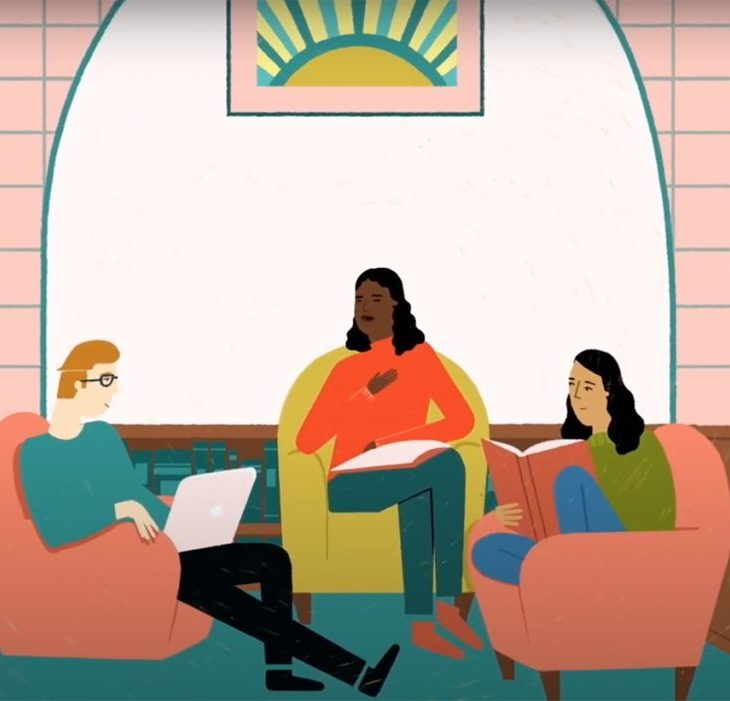
Michal Meulenberg teaches Islamic studies at two Christian institutions in Southern California, serving as an adjunct assistant professor in Islamic Studies at Fuller Theological Seminary and Assistant Professor of Islamic Studies and Peace & Conflict Transformation Studies at Biola University.
Her classes focus on the history of Muslim-Christian relationships, Islam in North America, Islam in the global context, peace and conflict transformation, and grassroots peace building and social justice advocacy.
Meulenberg used the curriculum “Christian Leadership in a Multifaith World,” co-designed by IFYC and the Council for Christian Colleges and Universities (CCCU), which together awarded grants for educators to use the curriculum on Christian campuses. The program explores the Christian foundation for interfaith bridge-building, enhances students’ religious literacy, and highlights the ways interfaith cooperation fueled the American civil rights movement.
In a recent program for the cohort of grantees, Meulenberg spoke with IFYC Program Manager Don Abram about interfaith cooperation within a Christian context. The following conversation has been edited for clarity.
Don Abram: I am curious, you are someone who has been able to carry out the curriculum, not just in one campus context, but in two, and I’m really interested in your perspective on engaging interfaith conversations within a predominantly Christian context. As we know, it presents unique opportunities and also unique challenges. Tell us about how you’ve navigated challenges and opportunities in your classroom as an interfaith leader.
Michal Meulenberg: Last spring, I was able to use the curriculum in a class that’s specifically focused on helping Biola students engage in Islam. And then I also taught a class on action and advocacy. All of these students were interested in social justice, human rights, and then it brought interfaith in there, so it came from two different angles.
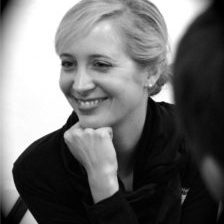
Professor Michal Meulenberg. (Fuller Theological Seminary)
And then this last fall at Fuller, the class was focused on Islam in North America specifically, and they really have students from all over the world, all graduate students. When I taught at Biola, I also had some undergrads, but at both schools, it’s the same problem of, “I don’t know any Muslims,” when it’s a class on Islam, or “I don’t know people of other faiths to connect with.” Some may already have connections, others don’t. And so, for both classes, I would help the students by organizing a virtual mosque visit because we weren’t allowed to do one in person, or we couldn’t because students are all over the world.
And I really applied [letting students coordinate plans with connections in the Muslim community] more this semester rather than doing it all for them. And it was seeing some success seeing from the last reflections, students are saying, “Oh, I made a friend because of this class, and we’re going to continue to hang out and we’re going to go serve the homeless together.” And that’s been an encouraging thing to see. I wanted to always do things for people, by now taking that step back and saying, I’m going to equip you to do it on your own.
DA: That’s such an important piece that you name because the goal in much of this curriculum is to really build up interfaith leaders, folks who are able to go out into the world around them and build and foster those connections. So it’s encouraging to hear how you were able to invite students to strengthen those interfaith leadership skills. I’d like to ask a question about the [IFYC] curriculum, in particular. As you incorporate various aspects of the [curriculum into your (classes), I’m curious to know what surprised you the most. Another way of framing it is, what were the interfaith truths that you found yourself coming back to as you engage the work?
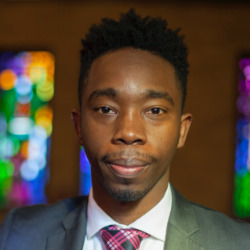
The Rev. Don Abram, IFYC
MM: I think as I reflect back on all three classes, specifically this past semester, the word “intersectionality” just keeps coming up for me and all the unique ways in which it can be approached, and over and over again, I’m learning that just because someone may have a lot of experience working in racial justice, that doesn’t automatically mean that they know how to do interfaith work or combine those. Or just because someone has a lot of experience in interfaith spaces, they felt greatly challenged when they’re asking to engage the topic of racial justice. And so that’s why I’m such a huge fan [of the IFYC curriculum], especially the module on interfaith cooperation and civil rights. Students expressed such a surprise that they weren’t just learning about Islam in the class or about Muslims, but also about racism and Islamophobia and interfaith cooperation.
For example, students were really surprised to learn that the civil rights movement was actually interfaith. The truth that I come back to is that we really can never stop learning. There are these blind spots that we have that need pointing out, and I feel that the curriculum does just that, especially in these intersectional areas of not just talking about one topic but combining multiple topics and seeing the unique elements that it brings and how that propels us forward in interfaith cooperation.
DA: As you’ve been teaching your courses, what do you see as some of the most common misperceptions about interfaith cooperation, and how have you responded to those concerns and misconceptions in your classroom?
MM: It’s the whole fear of watering down and compromising faith. And there’s also, especially in certain Christian circles that care about different kinds of injustice that they want to deal with, they’ll organize, “Let’s create a Christian nonprofit that’s going to focus on X,” not realizing there are many people of other religions or no religion who might actually have a lot in common, who you would be so much better positioned if you were to work together on addressing these injustices. But I think what they then (fear) is that just by participating with other groups, we then also have to agree with all the other things that this group may be affiliated with or is seen as.
Sometimes, I hate to say, there’s almost a fear of ‘guilt by association’ which is such a huge problem in communities. Just because I am friends with someone, that also does not mean that I have to agree with all these things. So we really go back to ask, what is your faith teaching you about this? What are you hoping to accomplish? Talk to people who have another worldview or position or religion and you’ll see [that] you actually have a lot in common and you can work together. And there’s a lot of beautiful examples from the Bible to show that as well.
And so it’s constantly peeling away at these layers of: where’s this fear coming from? Sometimes it’s in my own Ph.D research. For example, I was focusing a lot on not just personal attitudes, but also people’s perceived social norm. [The question of] “what are those important to me thinking of me doing this?” is almost more important than what they themselves were thinking. So for example, people would be worried about, “If I would do X, what would my donors think,” or “this faith community that I’m part of would think this if I were to do X.” Really working on social perceptions and learning to be courageous, and saying ultimately, you’re living for the audience of One; if this is the work that God is asking you to do – you should do it. What other people around you may think of you or who you’re doing this together with shouldn’t be part of the consideration. It should be that you care about this issue that you seek to address. And so that helps.
Sometimes with students, [they write about how] other people have gone through this path before. How do you deal with criticism that you might get from an uncle or an aunt or an elder when they hear of the interfaith work you do. Learning to show that is also what you see in the [IFYC] curriculum — that some of the criticism that Martin Luther King faced, or Malcolm X or other people — this is part of being engaged in this, and so be brave and continue to move forward.
DA: Thank you so much for that. This is, as I mentioned, the second time that you have carried out this grant with [IFYC] and I want to know if there was one lesson that you carried with you, from your time carrying out this work at two different campus settings. What would that be?
MM: I think it would be to continue to push the envelope and think outside the box. I’ve done interfaith work for more than a decade, and I’ve taught these classes since 2014, but I’d never thought about bringing in some of these intersections. I think all of us were awakened by the murder of George Floyd and we’re learning [that], even if your class is not specifically on this [topic], it still touches on the issues that are in society.
And one of the things I started doing in all my Islam classes, is I would always bring in Muslim guest speakers to share about the basics of Islam and then [allow] for people to ask questions. And I thought, I need to really focus on, who am I asking for that? Am I always asking the same people of the same ethnic background? Can I incorporate more diversity here, but also on the topics I’m asking them — [what] am I always asking them to teach? Five pillars of Islam, basics. And so instead, I reached out to the Muslim Speakers Network, for example, and said, “Can we do something that’s not just on the basics of Islam? But can we really focus on [topics] like, what does Islam teach about justice? How are you dealing with the fact that we’re in a racial reckoning in the United States in summer 2020, with this new renewed focus on an old issue?”
And one of the speakers, she was actually a defense attorney who takes on clients in the criminal justice system who can’t afford an attorney, and she had just gone to court the day before speaking in my class. She had faced a judge who thought that she was the defendant rather than the defense attorney. She’s a hijab-wearing Muslim woman. And so she was dealing with Islamophobia and racism in the courtroom from the judge while defending predominantly People of Color. We’re facing the issue of mass incarceration but she’s doing all of that from her faith, Islam. I think for students to see that, see all these intersections of the issue of the criminal justice system in the United States — mass incarceration, Islamophobia, defendants not having money to have a defense attorney, and the huge caseloads that defense attorneys [have], plus interfaith, plus cooperation, all these layers all together. I will honestly say if it wasn’t for the Interfaith Youth Core curriculum, especially that third module, I wouldn’t have even thought to use it in this way, [and] I would have been struggling with how I can incorporate all of these different elements, and so I cannot recommend this work enough.
DA: Have you had freshmen or sophomores in your undergrad classes? If so, did you see a difference in their perceptions and perceived freedom to engage in difference?
MM: I’ve had freshmen and sophomores, and I would say the difference that I’m seeing with each new freshman class coming in, I see a higher level of anxiety just in general, across the board, of getting it wrong. And most come to the class more like, “I want to learn to not say the wrong thing,” and I see that less with older groups, and I don’t know if COVID has exacerbated some of that as well. There are many different layers to this. And so they, in my experience, are a little bit more hesitant to engage, but they’re also much more open. I feel like each generation coming in is more diverse than the one before and so they’re more aware that this is needed. They just want to know how to do it, and I need to kind of peel back on [the fact that] we want to engage more than just how not to offend. That’s not enough. We need to go deeper than that, but I find that that desire is very much there.
DA: Thank you so much.
For more on the partnership between IFYC and CCCU, read this Interfaith America essay by Eboo Patel and CCCU President Shirley Hoogstra.
This article was originally posted on January 7, 2022.
